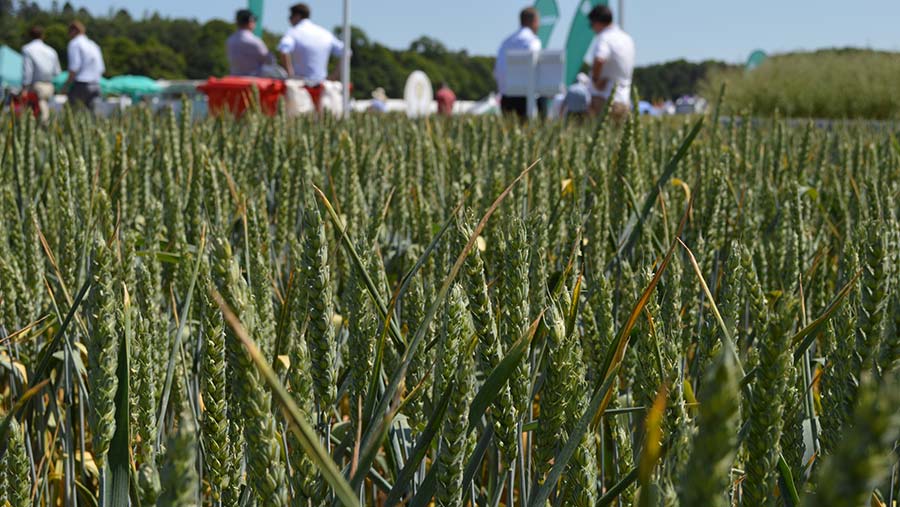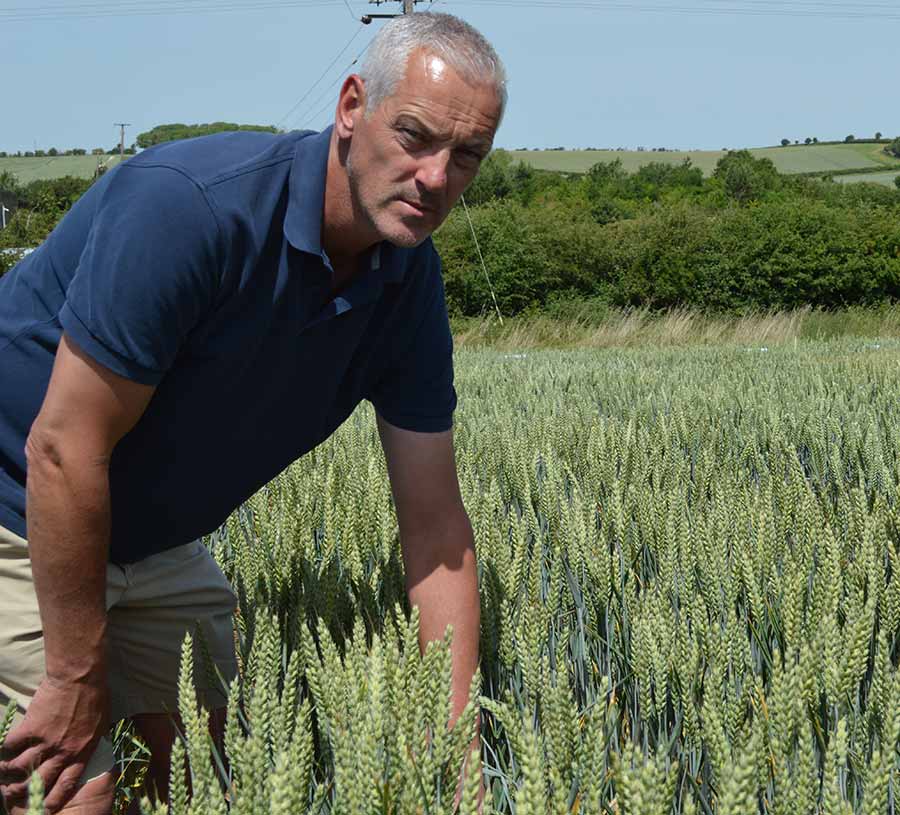Cereals 2023: Insecticide-free wheat set for drilling this autumn
 Grouse wheat © MAG/David Jones
Grouse wheat © MAG/David Jones An insecticide-free winter wheat variety will be ready for growers to drill this autumn, with the hard-milling feed wheat Grouse hoping to attract interest from those not wanting to spray against the crop’s two main insect pests.
With Grouse, breeder RAGT has taken the resistance to orange wheat blossom midge seen in its variety Skyfall and added the resistance to barley yellow dwarf virus (BYDV) seen in Wolverine.
Managing director Lee Bennett says Grouse offers an improvement on Wolverine, which was the first winter wheat variety to offer resistance to aphid-spread yield-damaging BYDV.
“Grouse is a distinct improvement in yield and disease package to Wolverine, and offers midge resistance as well,” he told Farmers Weekly at the Cereals event on the Thoresby Estate in Nottinghamshire.
See also: Norfolk estate assesses risks in move to no-insecticides
Sustainable
These BYDV-resistant wheats are seen as a more sustainable way of dealing with the aphid-spread disease, which is exacerbated by milder winters thought to be brought on by climate change, and offers more diversity with no need for insecticides.
All wheats containing the BYDV-resistance gene Bdv2 will be sold under the group’s new Genserus (generic security virus) brand, and any future varieties from the breeder will have this trait.
“We are removing the need for insecticide sprays in the autumn, and so delivering to farming a practice which is more sustainable,” Lee says.
The BYDV resistance breakthrough came with Wolverine, which was added to the AHDB Recommended List in December 2020, and this genetic trait has now been combined with the midge resistance seen in varieties such as Skyfall, Gleam and Skyscraper.
There is enough seed available of Grouse to take nearly 2% of the commercial C2 seed winter wheat market this autumn, and strong demand has seen the variety sell out for this autumn.
Recommended List trials
The variety will not go through for possible inclusion in the AHDB Recommended List (RL) at the end of this year, as all RL trials use an insecticide programme as standard and so are not testing for BYDV resistance.
“With an insecticide treatment, the variety will not stand out from a pack of varieties,” says Lee, explaining why the variety has been withdrawn from possible inclusion in the new RL.
Wolverine had a special recommended status but, with a fungicide-treated yield of only 99%, is well behind top yielders such as Redwald on 107%, Champion on 106% and Dawsum on 104%.
Wolverine has a moderate resistance score of 5.9 for septoria and just a 4 for yellow rust on a 1-9 scale where a high figure indicates that a variety shows the character to a high degree.

Lee Bennett © MAG/David Jones
The variety Grouse will be suited to early sowing when the risk of BYDV is highest, as it is a slow developer with a prostrate growth habit, but with good tillering ability and good tiller retention.
The variety may also appeal to growers looking to apply for the £45/ha payment for the non-use of insecticide under the Sustainable Farming Incentive.
“Farmers can grow the variety, take the £45/ha, don’t spray, and have the benefit of resistance,” Lee adds.
The valuable trait is set to add £15/ha, on average, to the cost of the seed compared with one pyrethroid insecticide spray at about £14-£15/ha, and last autumn’s mild weather sees the need for more than one spray in certain regions.
“It is cheaper than the alternative, and gives season-long control and benefits to the environment and biodiversity,” he said.
Further along the pipeline is a new Group 1 breadmaking variety RW42109, which also has the double resistance, and will likely be of even greater significance as this variety is for direct human consumption. The variety comes up for possible inclusion in the RL at the end of 2024.


